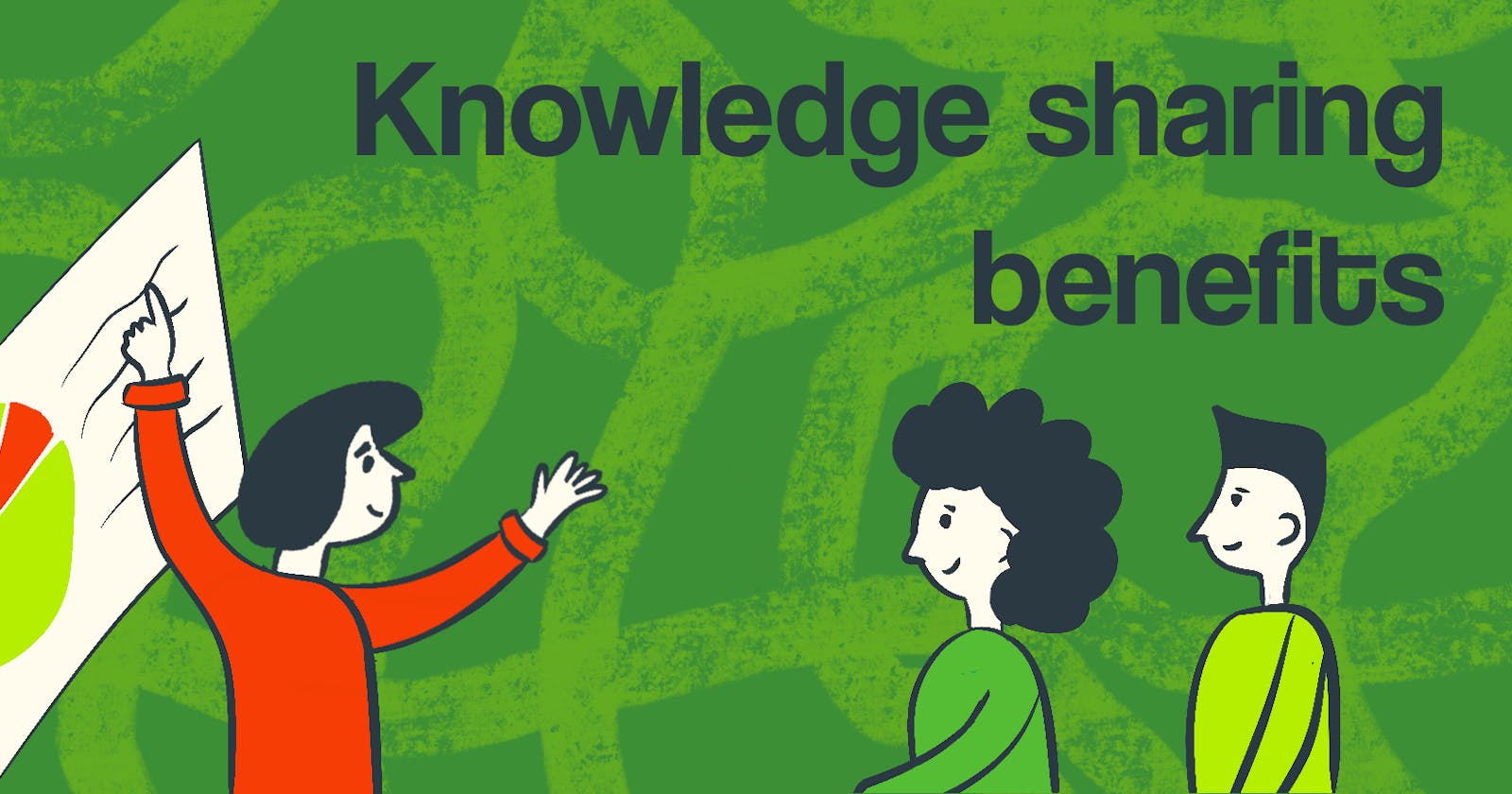This blog post was originally written and published on the inDrive blog. Want to work with us? Check our vacancies!
I'm addicted to learning and sharing knowledge. But it was not always like that. I always understood the profit of education, but for a long time didn't get any reason to spend time on sharing.
Knowledge sharing has many forms: teaching, mentoring, blogging and attending meetups and conferences. Even an explanation to people of you your professional area your job. One of my colleagues worked in a Cloud Security firm. Once, his old mother asked:
‐ What is your current job, son?
‐ Well, we secure the Clouds.
‐ Why are they paying you for this?
As you can see, even words have different meanings for people. Sharing something you know can require extra effort, but it can also provide additional benefits for your own.
Today I want to share my reflections about what teaching gave to me personally (and I hope will provide to you).
I still remember the feelings and thoughts which stopped me from starting to share.
Lack of Purpose and Motivation
This was the first and the biggest one. Why should I spend my time when I have so much to do and learn by myself. But in fact, this was caused by another thought.
What Can I Teach? Google / StackOverflow Knows Everything
The Internet is full of information in all possible forms. Free and paid, text and videos, superficial and deep. Do I really know something that is not there yet? And if I can find answers to my questions and solutions to my problems, everybody can, right? And again, it was not the root cause.
Fear
It's always easy to sit quietly on the sidelines, so nobody will notice you. Because when we start to say something, there is always a chance that we are wrong, and somebody will start to argue. We are all scared of judgment. And in my experience, this is always the main obstacle - overcoming our fear. Later I realized that this was Trap #1.
The Trap of Underestimation
I will call traps states that are easy to fall into and very difficult to escape. So trap number one is an underestimation of one's own knowledge. "I don't know much; someone already teaches all this," and so on.
I began to overcome this trap (still not understanding what I was trapped in) by accident. I connected to several IRC (Internet Relay Chat) chats and the developer forum when I needed help. But gradually, I began to answer and help people myself in part I knew well. And then the discoveries began.
The Discovery of the Mess in My Head
The first discovery was that the knowledge in the head was in absolute disarray. The paradox is that this mess is quite suitable for practical use. But to explain something coherently, you need to thoroughly dig.
The cause of that lies in the way we obtain our experience. Quite rarely do we have an academical learning process when things are learned from bottom to top step by step. In real life, we often compile solutions from pieces of knowledge and practical discoveries, and our mind stores them connected but with very blurry context.
But when I transfer this knowledge, I need to put it into logically sorted sentences, which requires clarifying the fog of the context I have in my head.
The Discovery of Wordlessness
Relatively fast, I understood that it's pretty hard to put things from my mind into understandable words. I can quickly provide the solution to the problem, but it's much trickier to explain all the details and get the right words to make it sensible.
The Discovery of Obscure. The Obvious is not Obvious
The most striking thing for me was that ideas and concepts that seemed evident to me, almost axiomatic and known to everyone, are by no means like that. But their obviousness gave me considerable gaps in explanations for others.
Our mind doesn't like excessive complexity and aims to simplify things. So, it removes the trail of how we learned something, primarily when it was obtained from practical experience. It's like it makes git squash from time to time.
The Benefit of Classification and Structuring
All this led me to the need to work on myself. I had to systematize, classify and structure my knowledge. To do this, I made plans, wrote out definitions, and just tried to write intelligible textual descriptions.
After that, it turned out that more than simple systematization was needed. For each area, and each task, it was necessary to look for the correct and most effective form of submission. Moreover, it was necessary to remember about showiness because a clear but boring presentation needs to be corrected.
The Benefit of Search for Information
This gave rise to the following link - the need to expand my understanding of the topic, look for additional information, and read other people's articles and materials. In other words, to teach others, you have to study yourself. So some time passed, and I learned a lot and rejoiced at what a fine fellow I was.
The Trap of the Overestimation
And then I fell into a new trap. This is the feeling that you have finally gnawed Mjolnir out of the granite of science, that you have great power in your hands and in your head, and you need to spread it. And you start broadcasting. Not to explain, not to teach, but to broadcast one's knowledge like a radio, without any feedback.
The Discovery of a Feedback. Gotta Learn to Listen
Fortunately, I quickly noticed something was wrong, and knowledgeable people suggested that it was essential to collect feedback and, in general, build the process in the form of a dialogue, not a monologue. And it turned out that in addition to improving the methods, it also gave unexpected results.
The Benefit of Unexpected Angles in Looking at the Problem
The way how we see the world, including the problems that we face, is the superposition of our own experience. Often this leads to a particular route of looking at the issues and how we solve them. But most of the problems have multiple, almost infinite solutions. And since other people have different experiences, they can have a very different point of view and don't get why we choose ours. And there is nothing so refreshing as a new point of view.
Due to another experience, people start asking a very unexpected question. This brings us to the Discovery of obscure again - things we thought were obvious are not. A clear example of such a question for me was, "Why should I place a return in the function?" My first reaction was - "What do you mean, why? It's obvious!" But no, it's not. Can you easily explain why? =)
The Benefit of Unexpected Difficulties in Phrasing
I will continue the example with the function. How many ways to explain function to the newbie do you know? At the very beginning, I had only a single form. But after explaining this in my first programming courses, I found out that many people need help to get this concept. More of that explanation that was fine to one person didn't work with another. And the opposite. Since then, I have been required to create about a dozen various ways to describe the same knowledge.
The Benefit of Patience
Being calm when explaining something over and over again is a convenient skill, but it is tough to obtain. It requires a lot of practice but also brings many benefits since it overall affects your work and private life.
The Trap of Routine and Repeatability
We love to make things that we are good at. We are starting to do them again and again. But unfortunately, satisfaction from doing them reduces, and one day we are hitting the point where we begin to feel boringness and tiredness. We want to do something new and refresh the process. But what else can we teach people if we already set up all our knowledge on educational reels?
Welcome to The Spiral of Cognition
At this point, you are underestimating your knowledge again, so you are trapped in the trap of underestimation. Way out of this trap is entirely the same - you need to start searching for the problems you know how to solve but have yet to try to teach somebody or explain the solution. This may be in the same area but at another level of complexity or in another field. Just keep seeking, keep sharing =)
By the way, is there something that stops you from writing a blog post? =)

